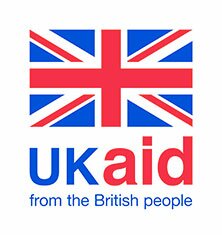Resource centre
Towards shock-responsive social protection: lessons from the COVID-19 response in Uganda
The stringent lockdown measures and global economic slowdown, due to COVID-19, are likely to have a large impact on poverty in Uganda. This report documents how the Government of Uganda plans to implement an Urban Cash for Work Programme to mitigate the impact of the pandemic on vulnerable populations. This report analyses the factors that enabled and constrained the effectiveness of the response, at the policy and operational levels, and finds that a timely response was undermined by several factors including the need to negotiate new financing and design a new labour-intensive public works programme, targeting urban populations. Finally, the report provides an assessment of the response in terms of coverage, adequacy, comprehensiveness, timeliness, and gender and social inclusion considerations.
Brief: Towards shock-responsive social protection: lessons from the COVID-19 response in Ethiopia
COVID-19 and national and international measures to curb its spread, may have pushed 15 million more people below the poverty line in Ethiopia. This policy brief draws on key learnings from the Ethiopia country case study, focused on the social protection response to COVID-19 and identifies recommendations to improve the shock responsiveness of the social protection sector. Recommendations in this policy brief focus on improving Disaster Risk Financing, the need to operationalize the management information systems of the flagship social safety net programmes and the consolidation of existing safety net programmes in to a single national programme in the long-term.
Towards shock-responsive social protection: lessons from the COVID-19 response in Kenya
This study documents the Government of Kenya’s social protection response to mitigate the negative impact of the pandemic on vulnerable households and presents an analysis of the factors that enabled and constrained the effectiveness of the response, at the policy and operational levels. We find that the Government of Kenya was able to achieve impressive coverage through various social protection interventions but that a coherent response was undermined by a weak coordination mechanism, poor functionality of the Single Registry and the need to target new populations, not typically covered by routine social protection programmes.
Towards shock-responsive social protection: lessons from the COVID-19 response in Ethiopia
National and international restrictions to combat the spread of COVID-19 led to an economic downturn in Ethiopia which is likely to have pushed an additional 15 million people below the poverty line. This report documents the Government of Ethiopia’s social protection response to mitigate some of the negative impacts of COVID-19 on vulnerable populations. It also analyses the factors that enabled and constrained the effectiveness of the response, at the policy and operational levels, and finds that a more extensive and timely response was undermined by a lack of financing and a social protection system that was designed to respond to droughts but was unprepared to respond to a novel type of shock such as COVID-19. Finally, the report provides an assessment of the response in terms of coverage, adequacy, comprehensiveness, timeliness and gender and social inclusion considerations.






